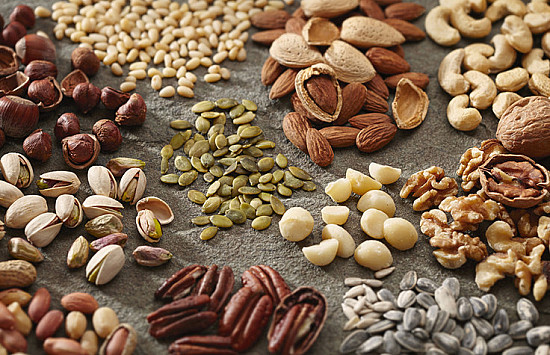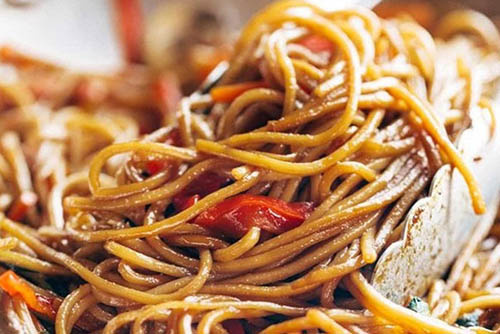Health Benefits on Nuts and Seeds
Nuts and seeds are rich in protein, healthy fats, fibre, vitamins and minerals. They regulate body weight as their fat is not fully absorbed; they regulate food intake and help burn energy. Nuts and seeds contain unsaturated fats and other nutrients that provide protection against heart disease.
We all know that nuts are a rich source of
vitamins and minerals as well as being a good source of plant protein. But did
you know research shows that making nuts a regular part of a healthy diet helps
to regulate our weight, and can protect against chronic diseases (such as heart
disease and diabetes).
Types of nuts
A nut is a simple dry
fruit consisting of one or two edible kernels inside a hard shell. Nuts include:
cashew nuts
hazelnuts
macadamias
pine nuts
pistachios
walnuts
Types of seeds
The nutrient profiles
of seeds are also very similar
to those of nuts. Common seeds include:
pumpkin seeds
flax seeds
sesame seeds
poppy seeds
sunflower seeds
psyllium seeds
chia seeds.
Benefits of nuts
There are many different types of nuts out
there with each having their own unique benefits. From a calorie, protein, fat,
carbohydrate, and micronutrient standpoint nuts are very similar to each other
– there isn’t a lot of variation between types. However, the micronutrient
content does vary somewhat, so some nuts may help optimize your diet and health
beyond the standard nutritional package offered by most nuts.
Nuts have about 29 kJ of energy per gram,
and are:
High in ‘good fats
Low in saturated
fats.
Good sources of
dietary protein
High in amino acid
arginine
Free of dietary
cholesterol
High in dietary fibre
Rich in
phytochemicals
Rich in vitamins and minerals
Benefits of seeds
Just Like Nuts, most seeds are rich in:
protein, healthy
fats, and fibre
minerals (such as
magnesium, potassium, calcium, plant iron and zinc),
vitamins B1, B2, B3 and vitamin E.
Oily seeds also contain antioxidants that stop the
fats from going rancid too quickly.




Comments
Post a Comment